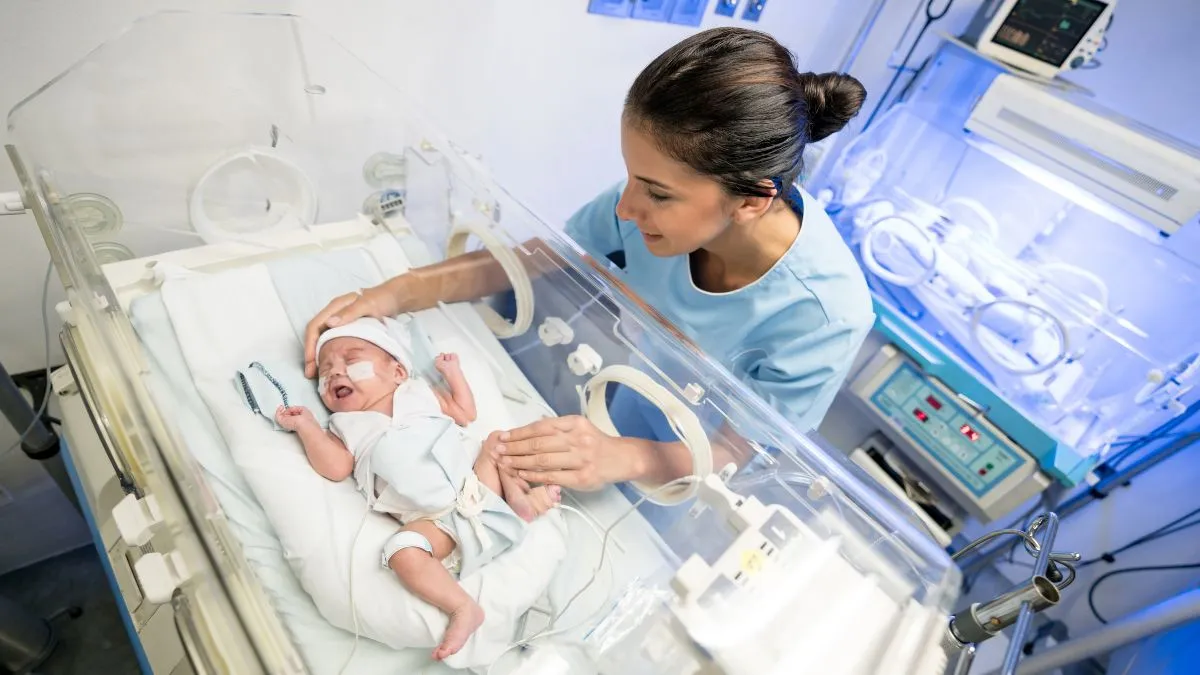- By Bornika Das
- Tue, 15 Jul 2025 08:02 PM (IST)
- Source:JND
In the heart of the Himalayan foothills, a small yet powerful Neonatal Intensive Care Unit (NICU) is quietly setting new standards in newborn care, offering surprising lessons for metro hospitals across India. Despite operating with limited resources, this rural NICU has achieved exceptional outcomes by focusing on simple, evidence-based practices that prioritise human connection, community involvement and environmental harmony. Far from being outdated or under-equipped, it operates as a Level 3 NICU with advanced medical support, proving that excellence in healthcare doesn’t always require excess.
While metro hospitals in cities like Delhi, Mumbai or Bengaluru boast cutting-edge technology and sprawling infrastructure, they can often overlook the profound impact of personalised care and grassroots empowerment. In conversation with The Daily Jagran, Dr Kushal Agrawal, HOD, Department of Neonatology and Paediatrics, KVR Hospital, Kashipur, shares how metro hospitals can learn from a NICU in the Himalayan foothills.
Simplicity In Protocols, Strength In Community
One of the key strengths of the NICU in the hills is its emphasis on basic yet effective care. Dr Kushal Agrawal states, “Practices like skin-to-skin contact (Kangaroo Mother Care), encouraging breastfeeding within the first hour, and involving families actively in the recovery process have shown remarkable results.” These approaches are not just cost-effective but also emotionally nurturing for both the newborn and the parents.
In contrast, urban hospitals sometimes over-rely on technology and underuse human-centric healing models. The high-altitude NICU's focus on training local nurses and midwives to spot early danger signs shows how empowerment at the grassroots level can make a tangible difference—something urban centres often overlook.
-1752589775185.jpg)
Metro Hospitals To Learn From NICU At Himalayan Foothills (Image Credits: Canva)
Importantly, while the setting may seem modest, the NICU is no less advanced than any facility in Delhi or other metros. Dr Kushal Agrawal mentions, “It is a fully equipped Level 3 NICU, featuring all the essential machines and technology required for critical neonatal care. What sets it apart is not the absence of innovation, but the absence of unnecessary overheads.” By streamlining operational layers and focusing on direct care, the cost of delivery to each patient is reduced almost tenfold, without compromising on quality. This model challenges the notion that advanced care must be expensive.
Environmental Influence And Holistic Healing
The quieter surroundings and lower pollution levels in the hills may not be replicable in metros, but there are lessons in minimising sensory overload. Dr Kushal Agrawal says, “Light, noise, and overcrowding in metro NICUs can be reduced with intentional design choices.” Even simple steps like scheduled quiet hours, dimmed lighting, and family-friendly visitation policies can mimic the calm that these high-altitude NICUs naturally benefit from.
Healing isn’t always about high-end machinery—it’s also about intention, simplicity, and care that connects. Metro hospitals can benefit from adopting some of these high-altitude principles: fostering stronger community involvement, simplifying protocols, and creating healing environments that put the baby and family at the centre. The mountains may be far away, but the lessons they hold can reshape neonatal care, even in the heart of a bustling city.

